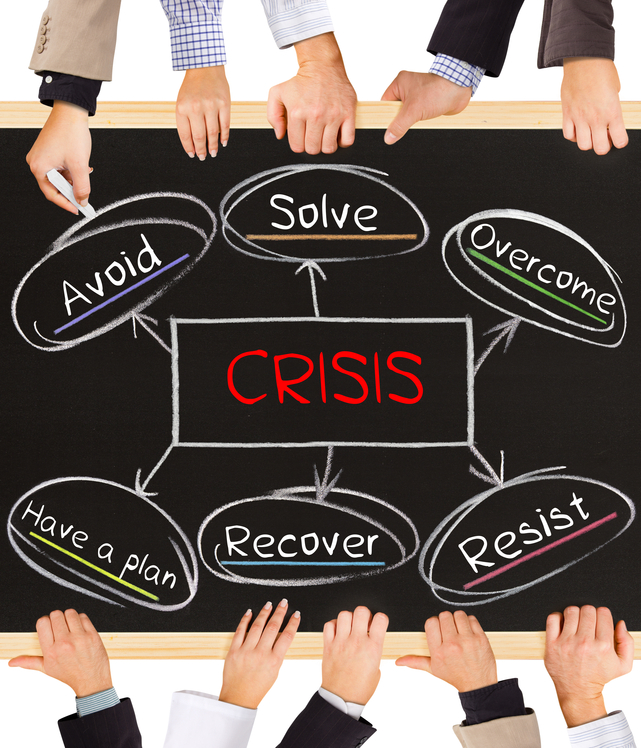Traditional first responders—firefighters, police, and emergency medical personnel—know that as part of their jobs they may face intense, threatening, and potentially horrific situations, long hours, severe trauma, death, and situations that threaten them personally. They receive special training in dealing with the daily stress of their jobs. Crisis communication personnel face some of these same stressors, but they may be far less prepared to deal with it.
 |
In 2014, the Centers for Disease Control and Prevention (CDC) issued a guidance document, Crisis and Emergency Risk Communication. The document is intended to assist hospitals and other healthcare providers to develop effective crisis communication procedures, but many of its principles are generally applicable. It offers advice on making sure that your crisis communication personnel are prepared to face and deal with first responder stress.
First Responder Stress
According to the CDC, it was after the terrorist attacks on September 11, 2001, that personnel who were not traditional first responders were seen to suffer many of the same “first responder stress” symptoms as those personnel, including increased levels of emotional exhaustion, anxiety, depression, and psychological distress. Since 2001, public health officials and crisis and emergency response communication professionals have also been recognized as first responders because they have to deal with the intense pressure from the media and general public to provide information immediately and accurately throughout the duration of the crisis.
If the crisis or disaster affected areas beyond the workplace, responders may be adding their work stress to the stress of losing their homes, and the possibility of missing, injured, or dead family members, friends, and pets. If these stresses aren’t addressed, responders are likely to demonstrate increased rates of:
- Distraction
- Poor decision making
- Absenteeism
- Refusal to come to work
First responders are also at increased risk of post-traumatic stress disorder (PTSD). Symptoms of PTSD include flashbacks to the traumatic event; avoidance of situations that remind the individual of the traumatic event; and “hyperarousal”—a condition marked by difficulty sleeping and edginess.
Stress Management Strategies
Help your crisis and emergency response communicators manage the stress of their jobs:
Before a crisis: Your crisis and emergency risk communicators will manage stress better if they receive precrisis training in stress management techniques. The body’s stress response is, essentially, a “fight or flight” response, so stress management training typically consists of learning to control and even turn off the body’s fight-or-flight response by returning breathing, heart rate, and mental agitation to a relaxed state. Proven techniques include:
- Exercise. Both aerobic exercise and strength training can improve physical fitness and reduce the impact of the stress response.
- Meditation and relaxation techniques. This can be done using deliberate mind-body practices like yoga and tai chi, or workers can be trained to recognize and control their body’s response using biofeedback.
- Journaling. Journaling provides a nonjudgmental outlet for difficult emotions, and it helps people prioritize their concerns, recognize their stressors, and work out issues they are dealing with.
- Development of support systems. The level of support required will vary depending on the individual and the stressor. For some, having opportunities to talk to close friends or coworkers and receive feedback provides emotional release and allows people to work through feelings and make sense of their experiences. Social support can put a traumatic experience into context and reduce its influence over the individual’s life. If social support is not enough, the individual may need a referral to a psychological professional.
- A healthy diet improves a person’s overall physical condition, reducing the overall impact of the stress response.
- Rest. Poor or inadequate sleep is a stressor of its own, with a negative effect on coping skills and decision-making ability. Encourage your responders to get enough sleep, even during a crisis situation.
Notice that most of these techniques are preventive, rather than reactive: the idea that they’re going to start eating a healthy diet and following a regular exercise regimen during a crisis is unlikely. But these techniques can help reduce all kinds of stress. Remind crisis and emergency response personnel that stress from different sources has an additive effect. If they can use these techniques to manage everyday stress in their personal lives, they will reduce the overall stress that a crisis adds.
Need more information on crisis response or stress management? Safety.BLR.com® can help you keep a cool head.
